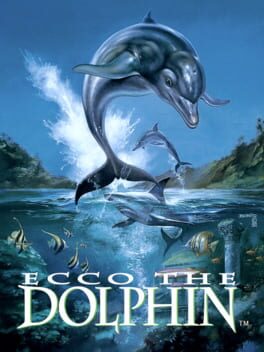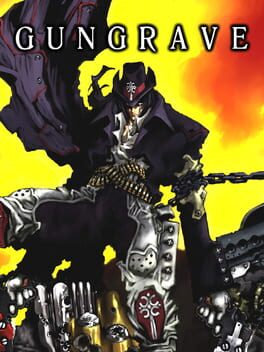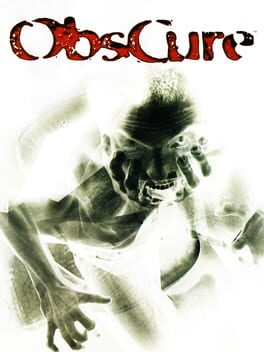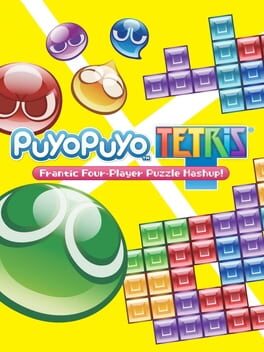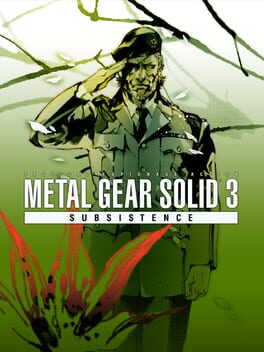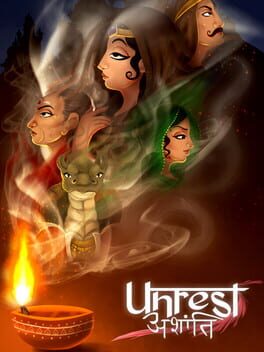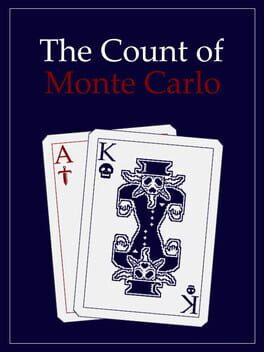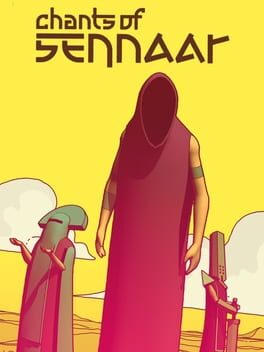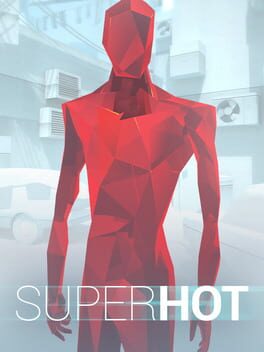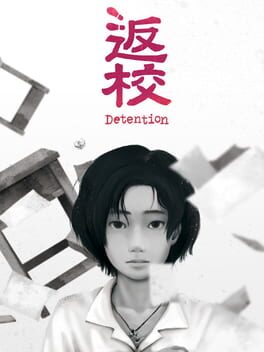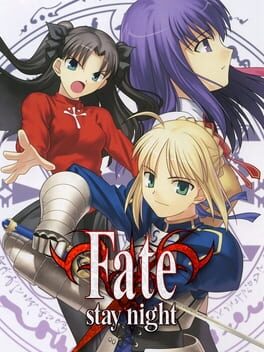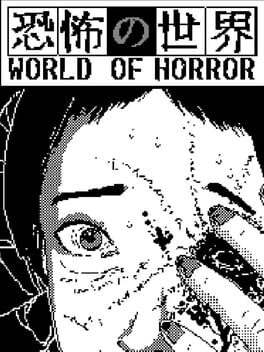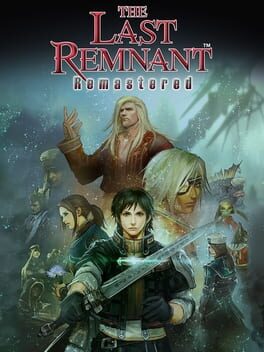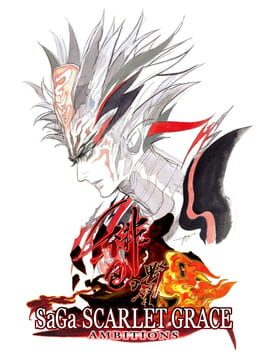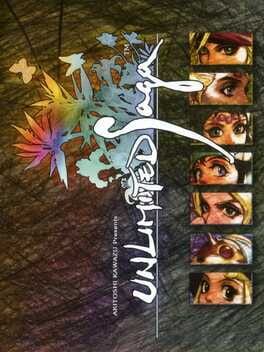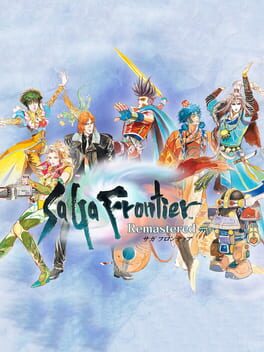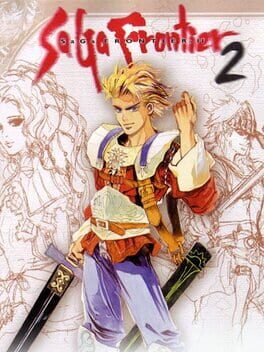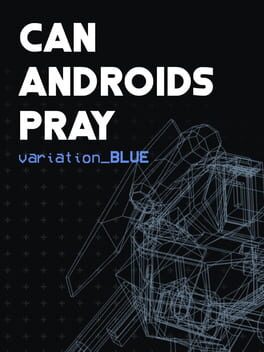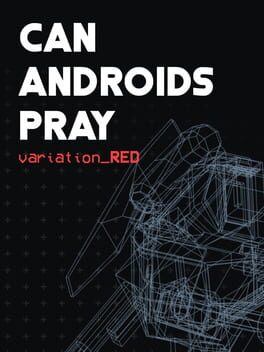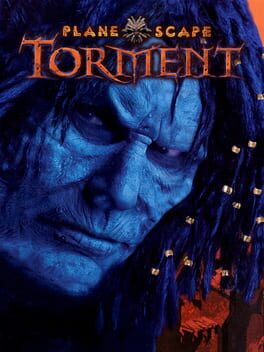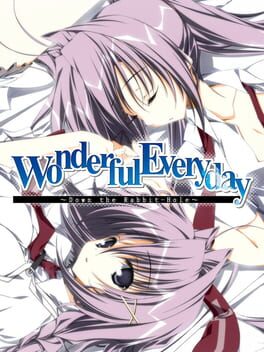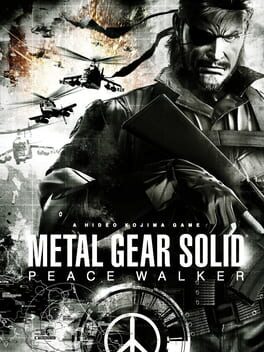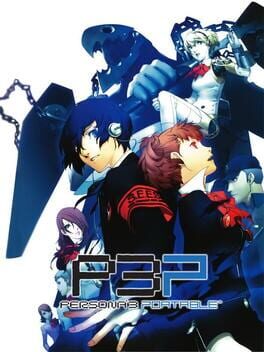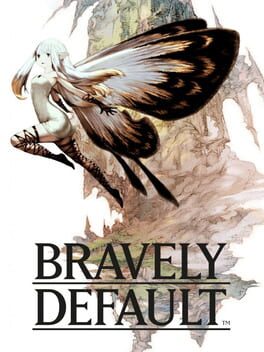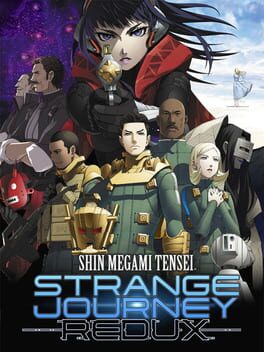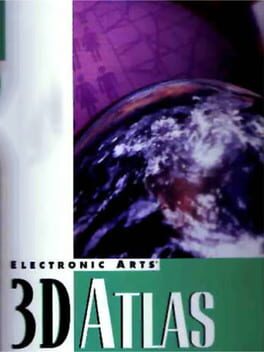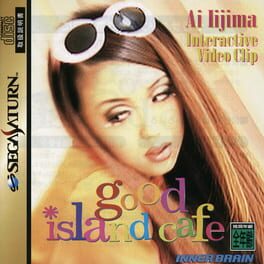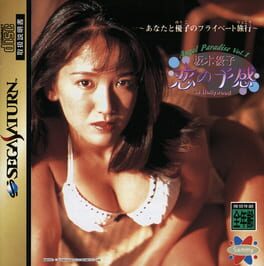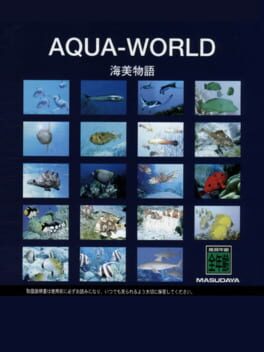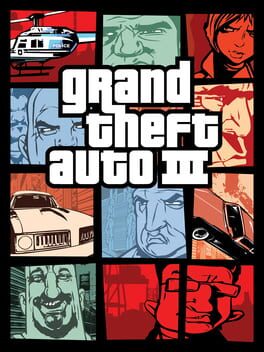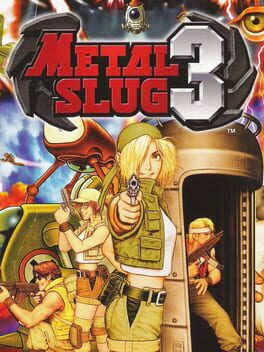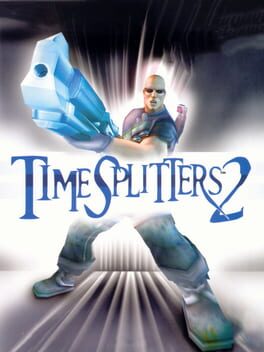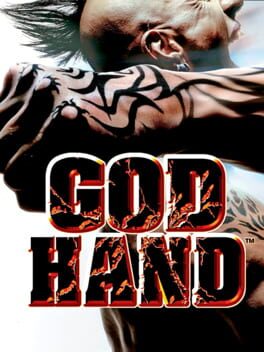kaijuu
37 reviews liked by kaijuu
Ecco the Dolphin
1992
Gungrave
2002
ObsCure
2004
Existe muita competência neste jogo e um carisma bem típico dos survival horrors do início dos anos 2000. Um survival horror cooperativo não poderia ser mais consciente de sua proposta. Uma trama que exagera em tropos escolares com um toque tão simples que te faz querer terminar o jogo só para ver o quão genuína será sua execução. Pois eu me surpreendi com o quão coeso este jogo é e o quão contemplativo ele pode ser! Enquanto os personagens têm um sabor meio ameno, a trilha sonora conduz os pontos de intensidade com um esmero absurdo! Sério, este jogo é como um frasco de guloseimas que você esqueceu atrás do armário e acaba de encontrar! Ele vai te deixar ainda mais feliz ao compartilhar com alguém!
Puyo Puyo Tetris
2014
Puyo Puyo Tetris is a nice start for anyone who wants to learn how to play both games. The adventure mode is almost a long tutorial with a lot of training. If u already know the basics, you will get 3 stars on each level really fast, and thats the whole thing! They put a lot of effort into teaching you HOW to play their game, exercise-specific strategies, and all!
The story is cute and simple with INCREDIBLE character design (4 real, I love this SM to the point where I'm sad that their just flavor for this game), they do a good job making you stay playing this mode.
Anyway, this game was made for being played online; once I played against someone who wasn't a machine, my experience became joy and everything made so much sense. It's really impressive how they put so much effort into teaching just for the player to have some fun.
Its sad that nobody plays this anymore (probably their playing puyo puyo tetris 2, but still).
Puyo Puyo Tetris is great.
ty to my gf who gave me this :)
ps: why tf they make you pop 100.000 puyos?
The story is cute and simple with INCREDIBLE character design (4 real, I love this SM to the point where I'm sad that their just flavor for this game), they do a good job making you stay playing this mode.
Anyway, this game was made for being played online; once I played against someone who wasn't a machine, my experience became joy and everything made so much sense. It's really impressive how they put so much effort into teaching just for the player to have some fun.
Its sad that nobody plays this anymore (probably their playing puyo puyo tetris 2, but still).
Puyo Puyo Tetris is great.
ty to my gf who gave me this :)
ps: why tf they make you pop 100.000 puyos?
final fantasy vii forte como sempre foi: todo elemento narrativo toma forma na nossa relação espiritual com o mundo, seja ele a natureza, nosso legado, a internet, o destino ou os confins da realidade
esse pessoal da página de reviews do site é muito fraquinho, o final é a melhor parte, achei que vocês tivessem abandonado o barco depois do remake
esse pessoal da página de reviews do site é muito fraquinho, o final é a melhor parte, achei que vocês tivessem abandonado o barco depois do remake
Death Stranding
2019
Death Stranding
2019
Feeling small, the weight of your body and cargo shifting moment to moment, you wander through landscapes with a real sense of scale and elemental menace. Marking out your favourite routes, you build up memories of the texture of the earth and the incline of the terrain. America has been swallowed by a rift in deep time, emerging as (Iceland?!) a volcanic wasteland haunted by the dead. Tethered to others via ghostly gestures and transient structures, every trip has an eerie loneliness that rises in waves.
The closer this gets to Metal Gear, the more it fumbles, especially with movement a little too clumsy for combat. Spectral and human entities are at their most affecting when glimpsed just out of sight or over the horizon, often throwing off your concentration for a moment, resulting in hilarious mistakes. The deliveries are (mostly) emptied out of significant narrative content or reward, a minimalism that just leaves you alone with the landscape.
The closer this gets to Metal Gear, the more it fumbles, especially with movement a little too clumsy for combat. Spectral and human entities are at their most affecting when glimpsed just out of sight or over the horizon, often throwing off your concentration for a moment, resulting in hilarious mistakes. The deliveries are (mostly) emptied out of significant narrative content or reward, a minimalism that just leaves you alone with the landscape.
Death Stranding
2019
I was thinking, trudging joylessly over wet rocks through glacial streams, my controller making the sounds of a crying baby, that no game has ever made me feel this way before — this sad, of course, but this peculiar mix of weary and curious, of wanting to do something despite the crushing futility of it all. Kojima's bizarrely over-engineered menus and mundane mechanics are so expertly deployed to elicit exactly this paradox, it is no wonder the game is so divisive. The game-ness of the game is turned against you so as to add experiential weight to its surface thematics. And so continuing on this line of thinking no game has done this before (besides Shenmue), made its sadness manifest so physically in the body of the player. I came to realise no film or book or piece of music has either, and so maybe, just maybe this is a big deal. If we are looking to art to make sense of the moment of our own extinction event, then I can think of no better work than Death Stranding to thicken time, to underscore the heavy intensity of the world beyond the human, to remind us that a single rock could be the difference between the end of the world and another tomorrow.
Death Stranding
2019
Some thoughts that I had stuck in my head:
Explore the world looking for a solution, a connection. Together. Maybe not physically, not by the same routes, maybe not delivering the same
It is difficult for Death Stranding to reach you playing it alone. Its nature emerges more easily online, and it's a great gesture and a statement of intent that you don't need a subscription to ps plus.
Kojima presents a digital world that is difficult to interpret and unite in words, a fiction that shoots directly into our reality.
Cursed, heartfelt, but also emotional. embrace the connections between things, but question them. a celebration of human duality
More prophetic than MGS2 and with better observation, generalizing and at the same time specifying the difficulties of our day to day, articulating them in the total art of videogames.
From the most abstract to the most literal, collective fears, traumas and very recognizable memories materialized. Visible, audible, and even palpable in an alien America full of dualities, of people who only intuit and show themselves through holograms and numbers.
But we are here. Maybe not next door, but in the same world. And the proof is the ladder that I have used to create an improvised bridge, I have left it here, for you, for me, for everyone. And that rope on the cliff, that capsule, that package on the ground. We are here.
Where the rejection of what forces us to leave this world is manifested in a kind of allergy for those who are more akin to these fears or have experienced them to the limit.
Where people are baptized for their present, for their office and condemned for their past. Where the heroes deliver packages and letters. They come to our futuristic shacks and install an esoteric Internet.
Everything is Sam Porter Bridges, whose name makes it STRONGLY EVIDENT what Death Stranding is about, and at the same time no, you cannot perfectly encompass anything as complex as earthly and afterlife connections, the natural and the mechanical, the Software and the Hardware, the "Ka" and "ha". reality and dreams. Much of Death Stranding's recontextualized iconography seems to suggest that.
It is a work that calls for thinking in an unprecedented way about it, because it offers an unprecedented reinterpretation of the transition and relationship with our environment, especially for gaming standards, obsessed with the mechanical-narrative relationship or the challenge, the suggestion and the satisfaction as a criterion to generate interpretations that are autopsies or descriptions. That in the best case.
At worst you have Far Cry 3.
Every species has the game in different facets and areas as a form of intellectual and emotional connection.
Children play and learn/relate, animals play to understand each other. We play to replace war.
Even before having sex we played.
Homo ludens. And Kojima welcomes a lot of this.
We need to be playful without losing focus.
There is no need for subtlety, just answer honestly to human questions. Use the forms of play as a response to the bitter obstacles of reality.
The example is the "Social Strand System", a mechanical reinterpretation of social networks where the game of deliveries and recovery of packages, manufactures and constructions has an impact on likes and statistics, but also on turning the environment into something more livable and peaceful, at the same time, shows that a more altruistic and ethical form of social interaction is possible.
It sounds naive to say that the reconstruction of the collective environment in an online video game is a lesson in altruism and community, even more so when there are likes involved, but the exercise of life begins somewhere, and now that we are waking up from this techno delirium -competitive utopian in which social networks had us flooded, now that we know how important they are to connect with each other more than to raise our ego, this "Social Strand System" shines more than in 2019.
Through the textures of slow gaming, an experiment of self-knowledge and updating is proposed, there is the unprecedented, in how the game confronts us with situations without necessarily connecting their thoughts or ideas and still achieving a certain cohesion. As in life, no one knows "what it is about" and yet we walk through it with what we own and what others leave for us.
And for a game that wants to embrace these themes without giving up the nature of its medium, its foundation, it's something really admirable.
-------------------
Not a single day goes by that I don't think about Death Stranding. Perhaps because of what has been happening in the world since 2020.
On arrival at Port Knot City.
How the corpses of people who have left explode, leaving an emotional and physical void in the form of a crater. Cities with people locked up, invisible. In the networks. In their inverted rainbows. How work becomes playing with its dozens of tools to transport, how enemies are my reflection, silence, likes, photos, stories... In life, how life can be everywhere.
And I can't even put into words practically anything that this game is for me. I plan to return to it in 2023 now that a sequel has been announced that begs the question: Should we have Connected?
Explore the world looking for a solution, a connection. Together. Maybe not physically, not by the same routes, maybe not delivering the same
It is difficult for Death Stranding to reach you playing it alone. Its nature emerges more easily online, and it's a great gesture and a statement of intent that you don't need a subscription to ps plus.
Kojima presents a digital world that is difficult to interpret and unite in words, a fiction that shoots directly into our reality.
Cursed, heartfelt, but also emotional. embrace the connections between things, but question them. a celebration of human duality
More prophetic than MGS2 and with better observation, generalizing and at the same time specifying the difficulties of our day to day, articulating them in the total art of videogames.
From the most abstract to the most literal, collective fears, traumas and very recognizable memories materialized. Visible, audible, and even palpable in an alien America full of dualities, of people who only intuit and show themselves through holograms and numbers.
But we are here. Maybe not next door, but in the same world. And the proof is the ladder that I have used to create an improvised bridge, I have left it here, for you, for me, for everyone. And that rope on the cliff, that capsule, that package on the ground. We are here.
Where the rejection of what forces us to leave this world is manifested in a kind of allergy for those who are more akin to these fears or have experienced them to the limit.
Where people are baptized for their present, for their office and condemned for their past. Where the heroes deliver packages and letters. They come to our futuristic shacks and install an esoteric Internet.
Everything is Sam Porter Bridges, whose name makes it STRONGLY EVIDENT what Death Stranding is about, and at the same time no, you cannot perfectly encompass anything as complex as earthly and afterlife connections, the natural and the mechanical, the Software and the Hardware, the "Ka" and "ha". reality and dreams. Much of Death Stranding's recontextualized iconography seems to suggest that.
It is a work that calls for thinking in an unprecedented way about it, because it offers an unprecedented reinterpretation of the transition and relationship with our environment, especially for gaming standards, obsessed with the mechanical-narrative relationship or the challenge, the suggestion and the satisfaction as a criterion to generate interpretations that are autopsies or descriptions. That in the best case.
At worst you have Far Cry 3.
Every species has the game in different facets and areas as a form of intellectual and emotional connection.
Children play and learn/relate, animals play to understand each other. We play to replace war.
Even before having sex we played.
Homo ludens. And Kojima welcomes a lot of this.
We need to be playful without losing focus.
There is no need for subtlety, just answer honestly to human questions. Use the forms of play as a response to the bitter obstacles of reality.
The example is the "Social Strand System", a mechanical reinterpretation of social networks where the game of deliveries and recovery of packages, manufactures and constructions has an impact on likes and statistics, but also on turning the environment into something more livable and peaceful, at the same time, shows that a more altruistic and ethical form of social interaction is possible.
It sounds naive to say that the reconstruction of the collective environment in an online video game is a lesson in altruism and community, even more so when there are likes involved, but the exercise of life begins somewhere, and now that we are waking up from this techno delirium -competitive utopian in which social networks had us flooded, now that we know how important they are to connect with each other more than to raise our ego, this "Social Strand System" shines more than in 2019.
Through the textures of slow gaming, an experiment of self-knowledge and updating is proposed, there is the unprecedented, in how the game confronts us with situations without necessarily connecting their thoughts or ideas and still achieving a certain cohesion. As in life, no one knows "what it is about" and yet we walk through it with what we own and what others leave for us.
And for a game that wants to embrace these themes without giving up the nature of its medium, its foundation, it's something really admirable.
-------------------
Not a single day goes by that I don't think about Death Stranding. Perhaps because of what has been happening in the world since 2020.
On arrival at Port Knot City.
How the corpses of people who have left explode, leaving an emotional and physical void in the form of a crater. Cities with people locked up, invisible. In the networks. In their inverted rainbows. How work becomes playing with its dozens of tools to transport, how enemies are my reflection, silence, likes, photos, stories... In life, how life can be everywhere.
And I can't even put into words practically anything that this game is for me. I plan to return to it in 2023 now that a sequel has been announced that begs the question: Should we have Connected?
7 lists liked by kaijuu
by Palas |
21 Games
by Palas |
9 Games
by dwardman |
16 Games
by grace_machine |
51 Games
by aglhrm |
27 Games
by stealthrush |
100 Games
by minusforever |
185 Games
